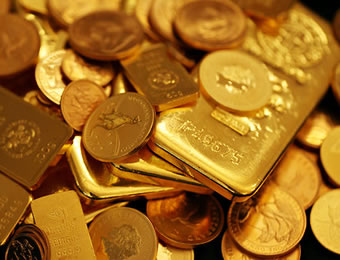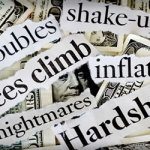Financial experts, after assessing developments in the Nigerian economy, have concluded that the Monetary Policy Committee meeting which begins today will give members the opportunity to take stock of the impacts of its tight policy regime and reflect on the following: interest rate retention, portfolio capital response to policy tightening among others.
The Monetary Policy Committee will be holding its first meeting in 2017 today Monday (Jan 23rd) and conclude on Tuesday (Jan 24th).
Finance experts from the Financial Derivatives Company Limited believe the committee we leave rates unchanged.
“We do not expect the Monetary Policy Committee to make any significant adjustments to rates in its meeting this month. Thus, interest rates are projected to remain within the band of seven per cent-12 per cent for the rest of January.
“Yet, due to the rising government-debt burden, the CBN might intervene in the market to push down T/Bills rate. They could adopt signaling methods towards the end of Q1.
In the same vein, experts at an investment banking and research company believe the operations of the foreign exchange (FX) market and its impact on foreign funds inflow into the Nigerian market will be a talking point at the meeting.
However, “we do not think a major shift in the management of the foreign exchange market will be announced at the end of the meeting.
“Despite the instability in macroeconomic variables, we do not expect a tweak in policy rates this week given the limited scope for easing or tightening and reluctance of the central bank to shift FX policy stance.
“Thus, we believe the upcoming meeting will give members the opportunity to take stock of the impacts of its tight policy regime and reflect on the following: has hike in interest rates (policy and markets) significantly anchored inflation expectation lower?”
The Afrinvest analysts said the committee may also consider how responsive has portfolio capital been to the aggressive policy tightening which has resulted in “a humped yield curve ostensibly guided to achieve positive short term real return?”
It will also assess whether FX market liquidity improved and has long-term foreign capital (a measure of economic confidence) responded to policy-tightening?
The answers to the above questions according to the firm would to a great extent determine monetary policy in 2017.
“Our prognosis is that monetary policy would remain tight in 2017 with benchmark rate left unchanged. Our outlook is predicated on the following: The CBN would likely find itself in an awkward situation where inflation rate is moderating (due to high-base effect) but inflation expectation remains high and capital importation is sub-optimal due to parallel market guided FX rate expectation and interbank market illiquidity.
“By consensus, external conditions will be tighter in 2017 with the US Fed expected to make one or two more rate hikes while ECB and BoJ draw back on Quantitative Easing. Large scale fiscal expansion expected in the US will also drive yields up further and spur capital flow reversal in EMs as well as speculative bout on their currencies.
“Even if there is a move to a more market friendly FX regime, a tight monetary policy would be needed in the short term to re-engage with global markets,” the experts reiterated in an email note.
They noted that the three aforementioned factors imply dollar liquidity will remain tight and as long as that stays, the justification for easing will not be enough even if inflation moderates. Yet, there could still be a space for moderation in short term rates even under the assumption of flattish Monetary Policy Rate (MPR).






